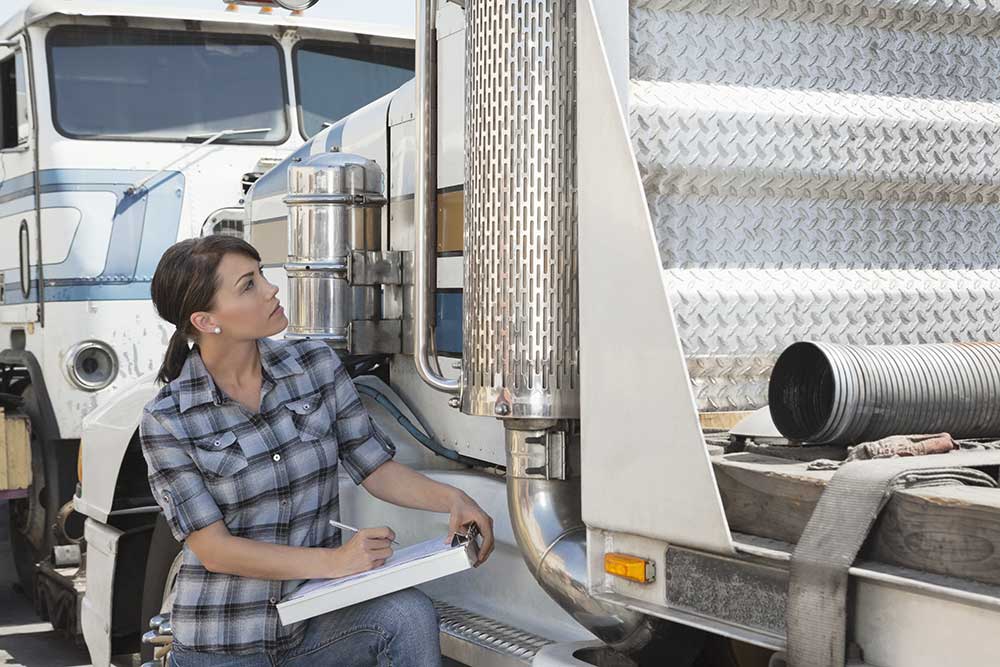Disclaimer: The information on our website is provided for general information purposes only. We make no representations or warranties of any kind, express or implied, about the completeness, accuracy, reliability, suitability or availability with respect to the website or the information contained on our website for any purpose. Any reliance on such information is therefore strictly at your own risk and we are not liable for any damages or losses arising out of or resulting from your reliance on any information contained on our website.
A transportation inspector ensures vehicles or other modes of transportation meet safety regulations and report any violations that need immediate attention. They look for customizations that may not meet safety regulations and check the emissions to ensure they meet environmental standards. Transportation inspectors also reinspect transportation after repair work is complete to ensure quality standards are met. Other job titles include emissions inspector, car inspector, quality assurance inspector, locomotive firer (trains), or vehicle inspector.
Watch a video to learn what a transportation inspector does:
How to Become a Transportation Inspector
A high school diploma is needed to become a transportation inspector. Some industries require you to have certifications inspect vehicles, though most provide on-the-job training. Others entering this career field choose to attend a trade or vocational college. Here they learn the skills necessary to inspect various transportation modes. According to O*Net Online, over 13% of those surveyed earned a certification after high school.
Certification programs can be earned through community colleges or vocational schools. They include in-person instruction and hands-on experience. Quality assurance, mechanics, transportation regulations, and safety protocols are lesson examples.
Many transportation inspectors start as mechanics; therefore, that learn all there is know. This can be valuable, especially when ensuring the safety of the transportation equipment that they are inspecting.
Job Description of a Transportation Inspector

Transportation inspectors essential job is inspecting vehicles for damage, mechanical failures, safety violations, and emissions pollution that exceed regulations. They work with diagnostic equipment to find problems, perform visual scans of vehicles, and inspect a vehicle’s gauges to ensure everything is working correctly.
Ultimately, this ensures the safety of other vehicles on the road. Transportation inspectors report areas for improvement and areas that must be fixed. After a vehicle has been serviced, they may also reinspect to ensure the changes were made appropriately.
Transportation inspectors work in indoors and outdoors conditions. Therefore, can be exposed to dust, hot/cold temperatures, or chemicals that can be dangerous. Protective gear may be necessary at times. This job can be physically demanding. They are also required to bend, lift, and may have to climb onto things throughout the day. Inspectors usually work full time and are employed by private shops or state inspection agencies.
Transportation Inspector Career Video Transcript
Whether a vehicle has 18 wheels or it’s the family car, somewhere along the way, a vehicle, equipment, and systems inspector will need to look it over to make sure it makes the grade for safety and other regulations. Vehicle inspectors typically work for a car dealership or a government agency, examining cars, trucks, and accessories to report on the condition of their parts. They also make sure there are no illegal devices on cars or trucks, such as those meant to get around auto emissions laws.
These inspectors are trained to see beneath a gleaming exterior to identify prior damage that may compromise a vehicle’s safety. They also conduct test drives to make sure everything sounds and feels like it’s running smoothly. Physical strength may be needed to lift heavy equipment for some inspections. Inspectors usually have a high school diploma, train on-the-job at a repair shop or factory, or take classes in automotive engineering at a technical or community college, or trade school. This is a job for someone who likes realistic, practical work and the satisfaction of knowing you’re helping to keep the roads a little safer, and the skies a little cleaner.
Article Citations
Bureau of Labor Statistics, U.S. Department of Labor, Occupational Outlook Handbook, Transportation Inspectors.
National Center for O*NET Development. 13-2011.01. O*NET OnLine.

